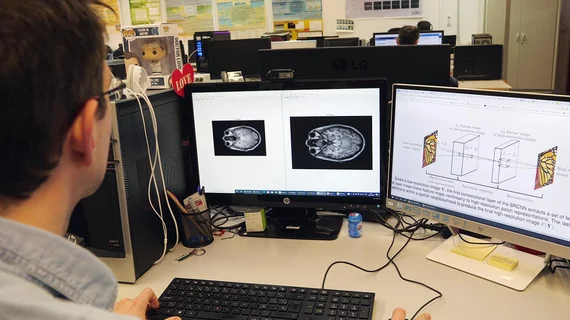AI turns low-quality brain scans into ‘super resolution’ MRIs
A new artificial intelligence algorithm can boost the quality of brain images gathered via magnetic resonance imaging exams, according to research described in Neurocomputing.
Computer scientists and nuclear imaging experts from the University of Malaga in Spain created their “unprecedented” deep learning method, which increases the resolution of low-quality images without distorting a patient’s brain structures.
The experts believe their approach will allow specialists to pinpoint brain-related pathologies—such as physical injuries, cancer or language disorders, among other things—with improved accuracy.
A number of factors contribute to limited image resolution, even with today’s advanced modalities, said lead author Karl Thurnhofer. Hardware constraints, high signal-to-noise ratios, practical limits to acquisition times and patient movement are all barriers to improved image quality.
The main difference with this MRI “super resolution” method, the group noted, is its unique post-processing abilities.
“So far, the acquisition of quality brain images has depended on the time the patient remained immobilized in the scanner; with our method, image processing is carried out later on the computer,” Thurnhofer said in a Jan. 17 news release.
According to the experts, the algorithm offers clearer and more accurate results without any additional computing time.

